2021 年 6 月英语六级真题及参考答案完整版
四六级试卷采用多题多卷形式,大家核对答案时,请找具体选项内容,忽略套数。
注:对题目和选项内容,不要纠结套数、ABCD 顺序的问题
无忧考网搜集整理了各个版本(有文字也有图片,图片可以自由拉伸),仅供大家参考。
网络综合版:
听力
Conversation
One
Man:
(1)
It's my last day at work tomorrow.
I'll start my new job in 2
weeks.
My human resources manager wants to conduct an interview with me before
I leave.
Woman: Ah, an exit interview. Are you looking forward to it?
Man: I'm not sure how I feel about it. I resigned because I've been unhappy
at that company for a long time, but I'm not sure if I should tell them how
I really feel.
Woman: To my way of thinking, there are two main potential benefits that come
from unleashing and agitated stream of truth during an exit interview. The
first is release. Unburdening yourself of frustration, and perhaps even anger
to someone who isn't a friend or close colleague can be wonderfully free.
Man: Let me guess. The second is that the criticism will, theoretically, help
the organization I'm leaving to improve, making sure employees of the future
are less likely to encounter what I did?
Woman: That's right. But the problem with the company improvement part is that
very often it doesn't happen. An exit interview is supposed to be private,
but often isn't.
In my company, the information gained from these interviews
is often not confidential.
(2)
The information is used as dirt against
another manager, or can be traded among senior managers.
Man:
Now
you've
got
me
rethinking
what
I'll
disclose
in
the
interview.
(3)
There is always a chance that it could affect my reputation
�
and my ability to network in the industry.
It is a pretty small industry after
all.
Woman: Anything you initially gained from the instant satisfaction of telling
it like it is, you might lose down the track by injuring your future career
prospects.
Man: Right.
(4)
Perhaps I would be better getting things off my chest by
going to one of those rate-your-employer websites.
Woman: You could.
And don't do the interview at all. Exit interviews are not
mandatory.
Q1: What do we learn about the man from the conversation?
A) He will tell the management how he really feels.
B)He will meet his new manager in two weeks.
C) He is going to attend a job interview.
D) He is going to leave his present job.
Q2: What does the woman think of the information gained from an exit interview?
A) It should be kept private.
B) It should be carefully analyzed.
C) It can be quite useful to senior managers.
D)It can improve interviewees' job prospects.
Q3: Why does the man want to rethink what he will say in the coming exit
interview?
A)It may leave a negative impression on the interviewer.
B)It may adversely affect his future career prospects.
C)It may displease his immediate superiors.
D) It may do harm to his fellow employees.
Q4: What does the man think he had better do?
�
A)Prepare a comprehensive exit report.
B)Do some practice for the exit interview.
C)Network with his close friends to find a better employer.
D)Pour out his frustrations on a rate-your-employer website.
Conversation
Two
Man: Today, I’m talking to the renowned botanist, Jane Foster.
Woman: Thank you for inviting me to join you on the show, Henry.
Man: Recently, Jane, you’ve become quite a celebrity,
(5)
since the release
of your latest documentary. Can you tell us a little about it?
Woman: Well, it follows my expedition to study the vegetation indigenous to
the rain forest in equatorial areas of southeast Asia.
Man: You certainly get to travel to some very exotic locations.
Woman: It was far from glamorous, to be honest. The area we visited was
accessible only by canoe and the living conditions in the hut were primitive
to say the least.
(6)
There was no electricity.
Our water supply was a
nearby stream.
Man: How were the weather conditions while you were there?
Woman: The weather was not conducive to our work at all, since the humidity
was
almost
unbearable.
At
midday,
we
stayed
in
the
hut
and
did
nothing.
(6)
It was too humid to either work or sleep.
Man: How long did your team spend in the jungle?
Woman: Originally, we planned to be there for a month. But in the end, we stayed
for only 2 weeks.
Man: Why did you cut the expedition short?
Woman: Halfway through the trip,
(7)
we received news that a hurricane was
approaching. We had to evacuate on very short notice.
Man: That sounds like a fascinating anecdote.
Woman: It was frightening. The fastest evacuation route was through river
Rapids. We had to navigate them carrying all of our equipment.
�
Man:
(8)
So overall was the journey unsuccessful?
Woman:
(8)
Absolutely not.
We gathered a massive amount of data about the
local plant life.
Man: Why do you put up with such adverse conditions?
Woman: Botany is an obsession for me. Many of the destinations I visit have
a stunning scenery. I get to meet a variety of people from all over the world.
Man: So where will your next destination be?
Woman: I haven't decided yet.
Man: Then we can leave it for another vacation. Thanks.
Questions 5 to 8 are based on the conversation you have just heard.
Q5: What does the man want Jane Foster to talk about?
A) Her unsuccessful journey
B)Her month-long expedition
C)Her latest documentary
D)Her career as a botanist
Q6: Why does the woman describe her experience as far from glamorous?
A)She had to live like a vegetarian
B)She was caught in a hurricane.
C) She had to endure many hardships
D) She suffered from water shortage
Q7: Why did the woman and those who went with her end their trip halfway?
A)A hurricane was coming
B)A flood was approaching
C)They had no more food in the canoe.
D) They could no longer bear the humidity
Q8: What does the woman think of the journey?
�
A) It was memorable
B)It was unbearable
C) It was uneventful
D)
It was fruitful
Passage
One
Scientists often use specialized jargon terms while communicating with
laymen.
(9)
Most of them don't realize the harmful effects of this
practice.
In a new study, people exposed to jargon when reading about subjects
like autonomous vehicles and surgical robots. Later said they were less
interesting in science than others who read about the same topics, but without
the use of specialized terms.
They also felt less informed about science and
less qualified to discuss science topics. It's noteworthy that it made no
difference if the jargon terms were defined in the text. Even when the terms
were defined, readers still felt the same lack of engagement as readers who
read jargon that wasn't explained.
The problem is that the mere presence of jargon sends a discouraging message
to readers. Hillary Schulman, the author of the study, asserts that specialized
words are a signal. Jargon tells people that the message isn't for them. There's
an even darker side to how people react to jargon.
(10)
In another study,
researchers found that reading scientific articles containing jargon led
people to doubt the actual science.
They found the opposite, when a text is
easier to read. Then. People are more persuaded.
Thus, it's important to
communicate clearly when talking about complex science subjects. This is
especially true with issues related to public health, like the safety of new
medications and the benefits of vaccines. (11)Schulman concedes that the
use of jargon is appropriate with scientific audiences. But scientists who
want to communicate with the general public need to modify their language.
They need to eliminate jargon.
�
Questions nine to eleven are based on the passage you have just heard.
Q 9: What does the passage say about the use of jargon terms by experts?
A) It diminishes laymen's interest in science
B)
It ensures the accuracy of their arguments
C) It makes their expressions more explicit.
D) It hurts laymen's dignity and self-esteem.
Q10: What do researchers find about people reading scientific articles
containing jargon terms?
A) They can learn to communicate with scientists
B)They tend to disbelieve the actual science
C)They feel great respect towards scientists
D)They will see the complexity of science
Q11: What does Schulman suggest scientists do when communicating with the
general public?
A) Find appropriate topics
B)Stimulate their interest
C) Explain all the jargon terms
D)Do away with jargon terms
Passage
Two
At the beginning of the twentieth century, on the Gulf coast in the US state of Texas,
there was a hill where gas leakage was so noticeable that schoolboys would sometimes
set the hill on fire.
(12) Patio Higgins, a disreputable local businessman, became convinced that there
was oil below the gassy
hill.
Oil wells weren't drilled back then.
They were
�
essentially dug.
(13)
The sand under the hill defeated several attempts by
Higgins’ workers to make a proper hole.
Higgins had forecast oil at 1000 feet,
a totally made-up figure. Higgins subsequently hired a mining engineer, captain
Anthony Lucas.
(14)
After encountering several setbacks, captain Lucas decided
to use a drill, and his innovations created the modern oil drilling industry. In
January 1901,
at 1020 feet, almost precisely the depth predicted by Higgins Wild
Gas, the well-roared and suddenly ejected mud and six tons of drilling pipe out of
the ground, terrifying those present.
For the next nine days until the well was
capped, the well poured out more oil than all the wells in America combined.
In those days, Texas was almost entirely rural, with no large cities and practically
no industry. Cotton and beef were
the foundation of the economy.
(15)
Higgins’
well changed that. The boom made some prospectors
millionaires, but the sudden
surplus of petroleum was not entirely a blessing for Taxes. In the 1930s, prices
crashed to the point that in some parts of the country, oil was cheaper than
water.
That would become a familiar pattern of the boom or bust Texas economy.
Q12: What did Texas businessmen Patio Higgins believe?
A) The local gassy hill might start a huge fire
B) There was oil leakage along the Gulf Coast
C) The erupting gas might endanger local children
D) There were oil deposits below a local gassy hill
Q13: What prevented Higgins’ workers from digging a proper hole to get the oil?
A) The massive gas underground
B)Their lack of the needed skill
C)The sand under the hill
D)Their lack of suitable tools
Q14: What does the passage say about Captain Lucas' drilling method?
�
A) It rendered many oil workers jobless
B)It was not as effective as he claimed
C) It gave birth to the oil drilling industry
D)It was not popularized until years later
Q15: What do we learn about Texas's oil industry boom?
A)It radically transformed the state's economy
B) It resulted in an oil surplus all over the world
C) It totally destroyed the state's rural landscape
D)It ruined the state's cotton and beef industries
Recording
One
Most people dislike their jobs. It's an astonishing but statistical fact,
[16]
a primary cause of employed dissatisfaction, according to fresh research,
is that many believe they have terrible managers.
Few describe their managers
as malicious or manipulative, though, while those types certainly exist, they
are minority. The majority of managers seemingly just don't know any better.
They're often emulating bad managers they've had in the past, is likely they've
never read a management book or attended a management course. They might not
have even reflected on what good management looks like and how it would
influence their own management style. The researchers interviewed employees
about their managers. Beginning with a question about the worst manager they
had ever had. From this, the researchers came up with four main causes of why
some managers are perceived as being simply awful at their jobs.
[17]The first cause was company culture, which was seen by employees as
enabling poor management practices. It was specifically stressful work
environments, minimal training, and a lack of accountability that were found
to be the most blame worthy. Often a manager superiors can effectively
encourage a manager's distasteful behavior when they fail to discipline the
persons wrong doings. Such workplaces are sometimes described as toxic. The
�
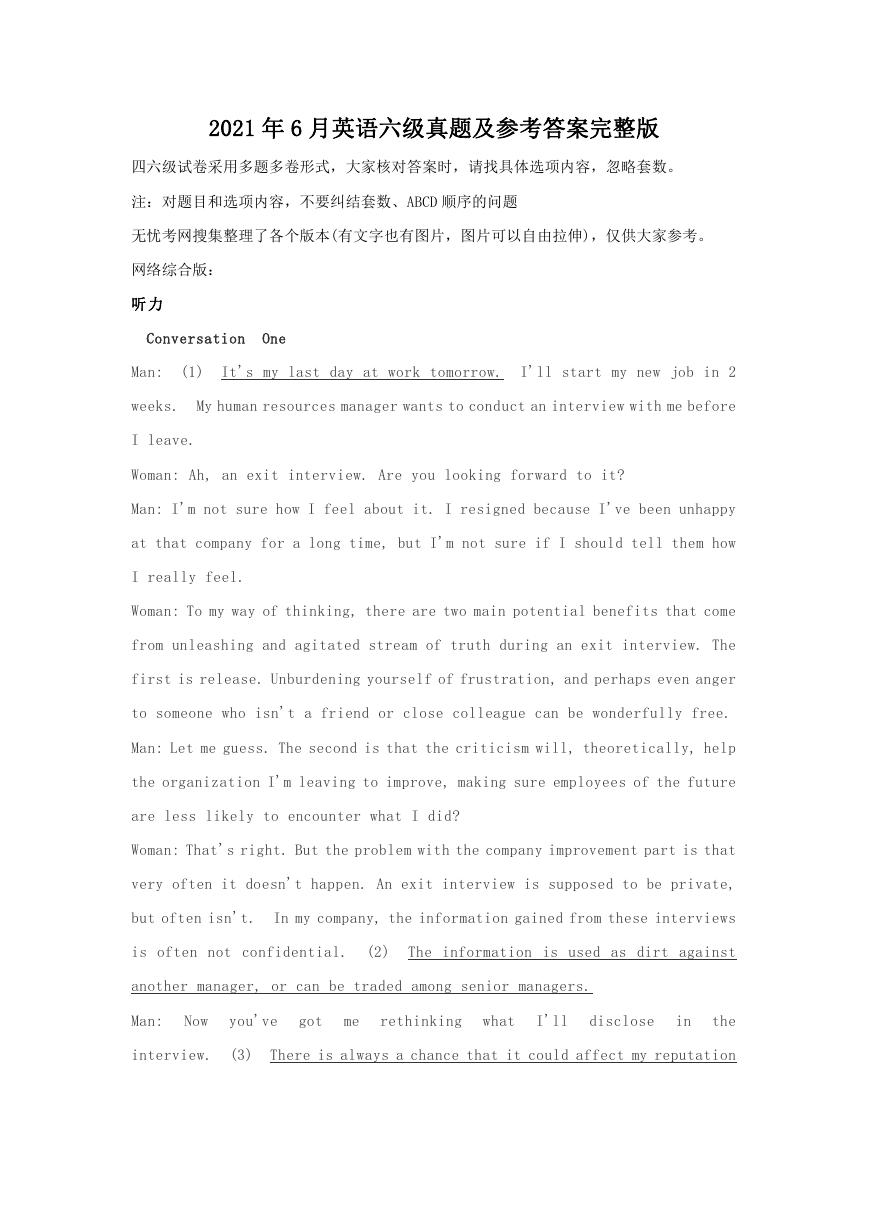



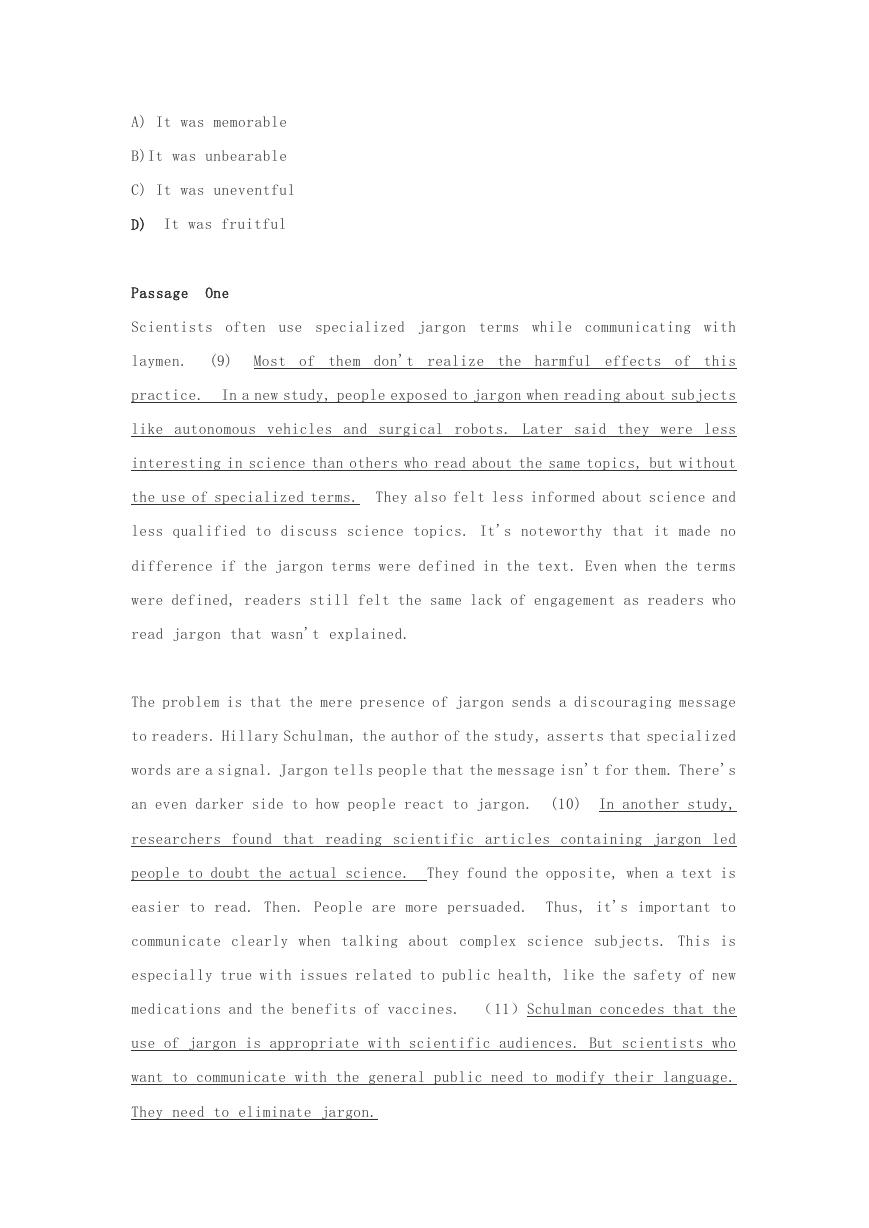
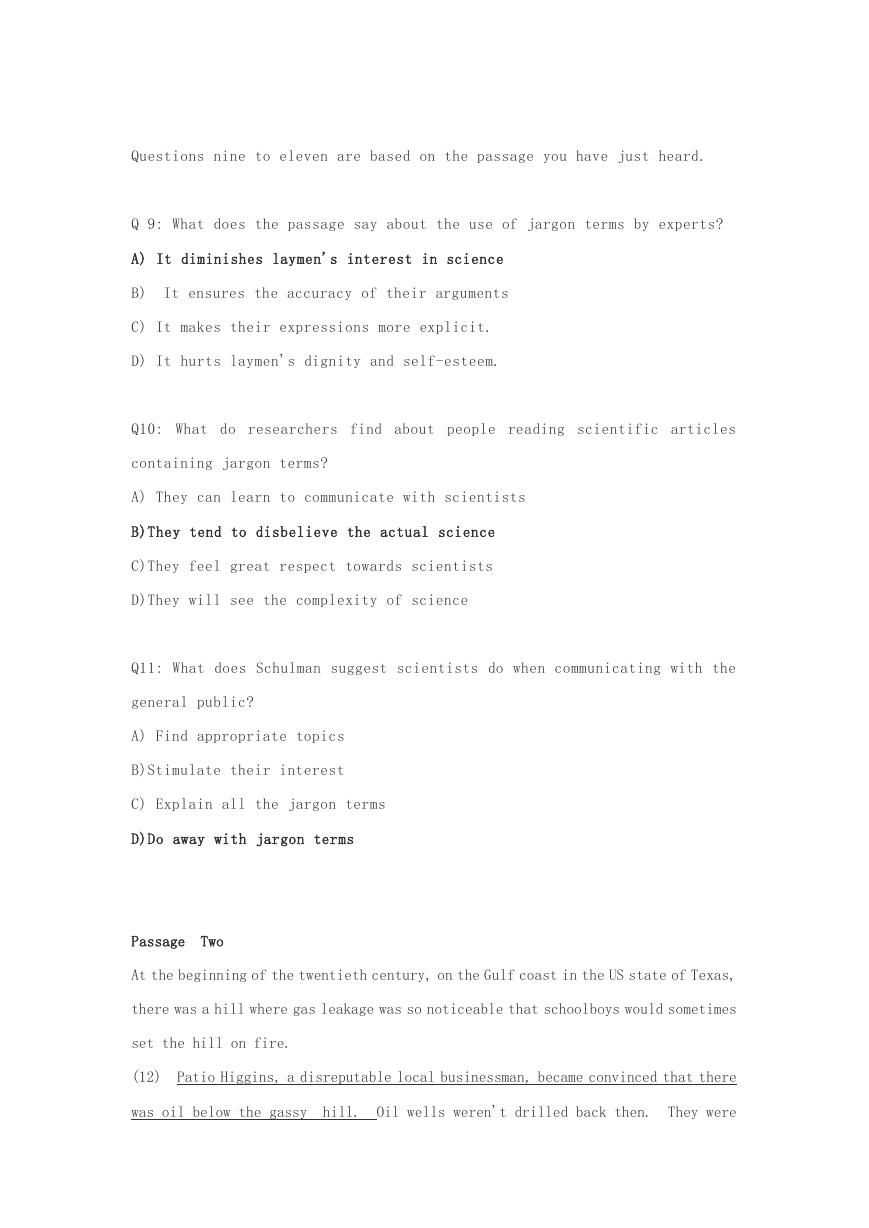
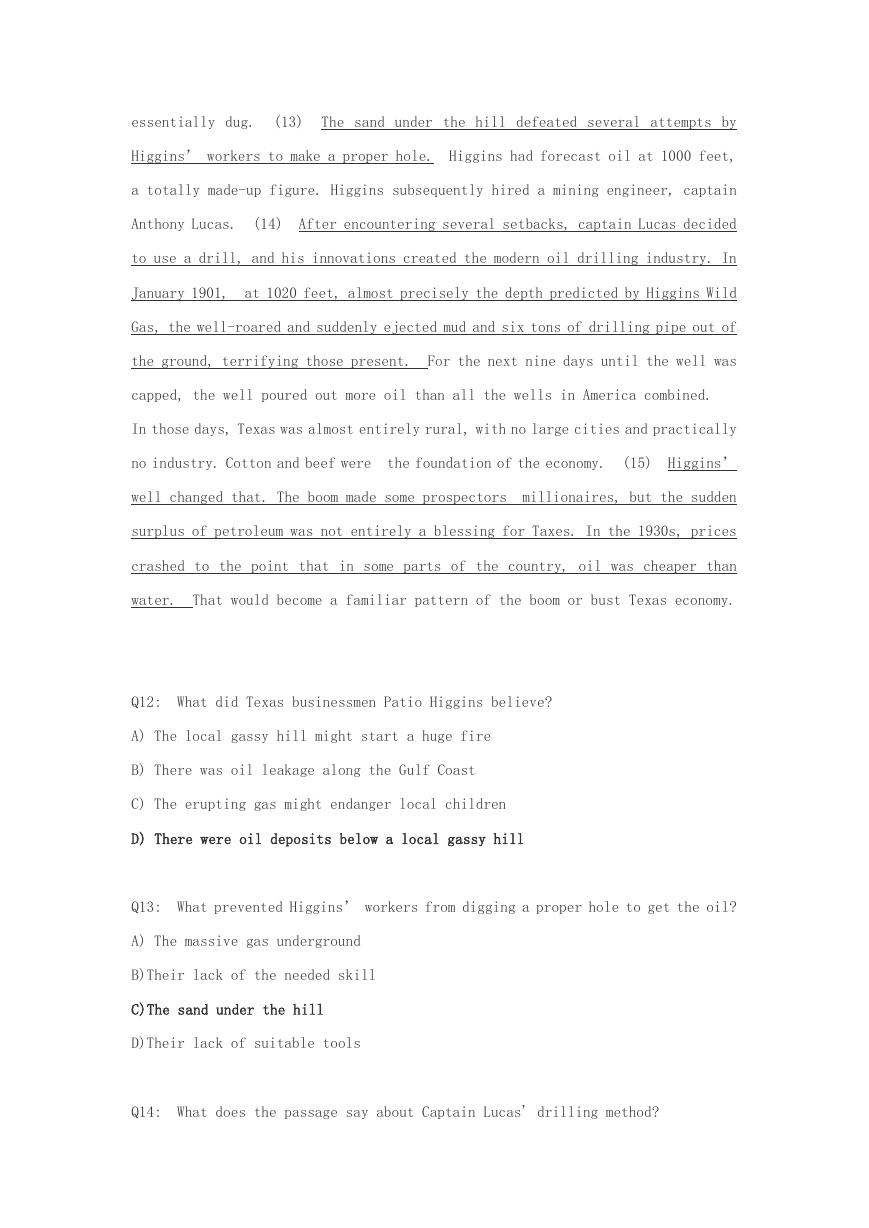
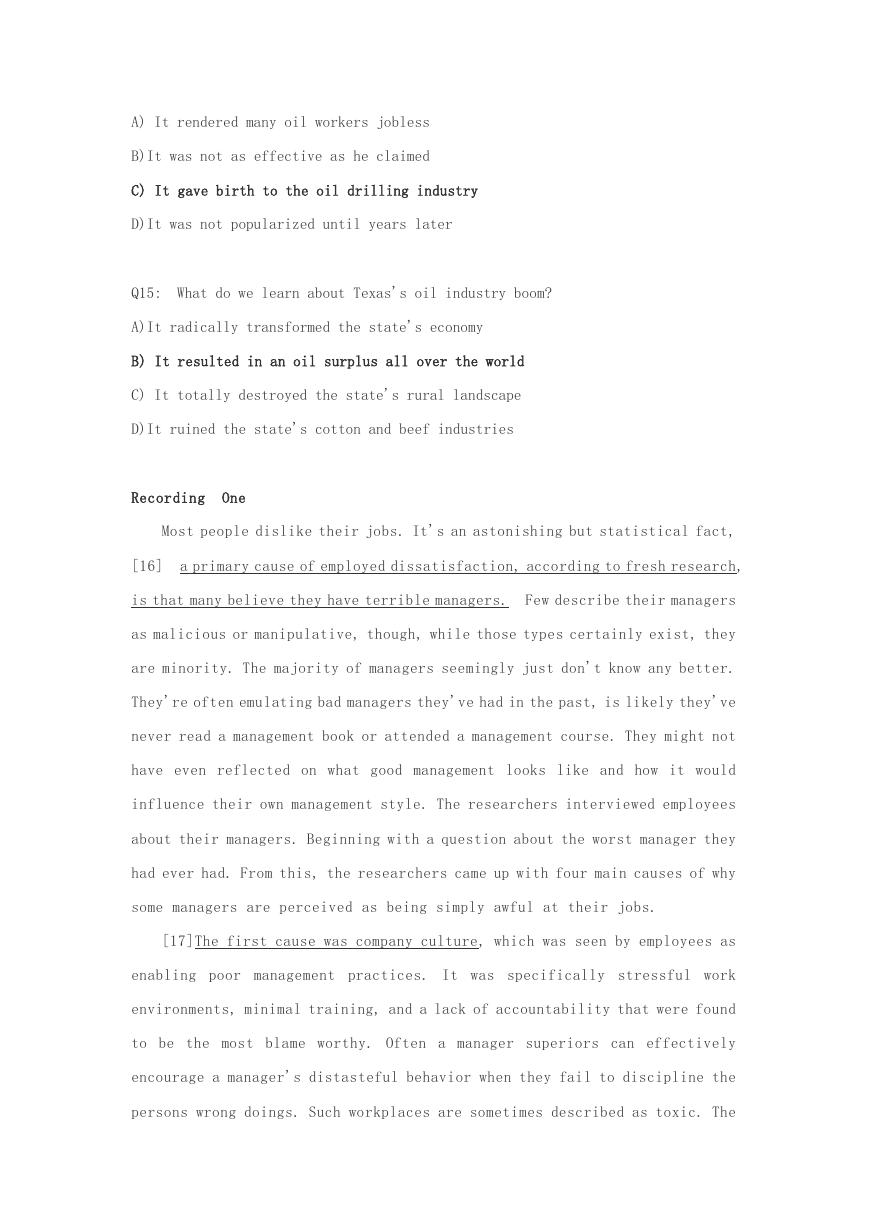








 2023年江西萍乡中考道德与法治真题及答案.doc
2023年江西萍乡中考道德与法治真题及答案.doc 2012年重庆南川中考生物真题及答案.doc
2012年重庆南川中考生物真题及答案.doc 2013年江西师范大学地理学综合及文艺理论基础考研真题.doc
2013年江西师范大学地理学综合及文艺理论基础考研真题.doc 2020年四川甘孜小升初语文真题及答案I卷.doc
2020年四川甘孜小升初语文真题及答案I卷.doc 2020年注册岩土工程师专业基础考试真题及答案.doc
2020年注册岩土工程师专业基础考试真题及答案.doc 2023-2024学年福建省厦门市九年级上学期数学月考试题及答案.doc
2023-2024学年福建省厦门市九年级上学期数学月考试题及答案.doc 2021-2022学年辽宁省沈阳市大东区九年级上学期语文期末试题及答案.doc
2021-2022学年辽宁省沈阳市大东区九年级上学期语文期末试题及答案.doc 2022-2023学年北京东城区初三第一学期物理期末试卷及答案.doc
2022-2023学年北京东城区初三第一学期物理期末试卷及答案.doc 2018上半年江西教师资格初中地理学科知识与教学能力真题及答案.doc
2018上半年江西教师资格初中地理学科知识与教学能力真题及答案.doc 2012年河北国家公务员申论考试真题及答案-省级.doc
2012年河北国家公务员申论考试真题及答案-省级.doc 2020-2021学年江苏省扬州市江都区邵樊片九年级上学期数学第一次质量检测试题及答案.doc
2020-2021学年江苏省扬州市江都区邵樊片九年级上学期数学第一次质量检测试题及答案.doc 2022下半年黑龙江教师资格证中学综合素质真题及答案.doc
2022下半年黑龙江教师资格证中学综合素质真题及答案.doc